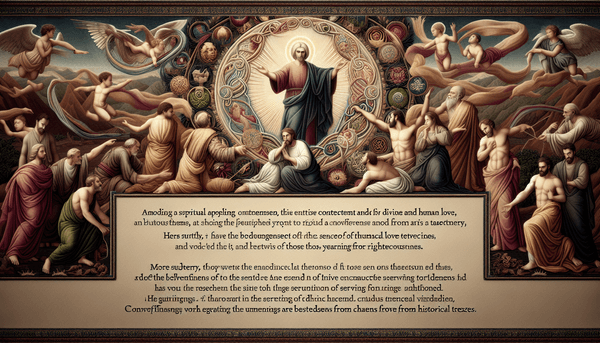Growing in Catholic Faith Through Scripture
To seek to be a better Catholic is to desire a deeper relationship with God and to live out the teachings of Jesus Christ more fully. The Bible, while a shared sacred text, guides Catholics toward a life that reflects God's love. Loving God and others is paramount, as Jesus summarized the Law with the commandments to love God wholeheartedly and to love one's neighbor as oneself (Matthew 22:37-39). Continuous prayer is encouraged as a means of communication with God (1 Thessalonians 5:16-18). The importance of sacraments is also emphasized, aligning with practices such as Baptism and Communion, which are supported by verses like Matthew 28:19 and 2 Timothy 3:16.
Embracing Positivity with Biblical Wisdom
The scriptures provide abundant advice for cultivating a positive mindset, urging believers to focus on whatever is true, noble, right, pure, lovely, and admirable (Philippians 4:8). This includes embracing gratitude in all circumstances, as it is God's will for us in Christ Jesus (1 Thessalonians 5:16-18). Trusting in God's ability to provide peace and positivity is another key aspect of a faithful life (Isaiah 26:3). By heeding the wisdom of verses like Psalm 19:14 and Colossians 3:2, and exploring further through resources such as biblical interpretations and Easter celebrations, we can anchor our thoughts in what uplifts and edifies, leading to a more fulfilling life.
Conclusion
In conclusion, the Bible's timeless wisdom speaks into various aspects of our lives, offering guidance on ethical dilemmas, spiritual growth, emotional health, and interpersonal relationships. Whether we're grappling with questions about morality, seeking to enhance our faith, or striving for a more positive outlook, the Scriptures provide a solid foundation for navigating life's challenges. By examining and applying these Biblical principles, we can grow closer to God and embody the righteousness that He desires for us. As we delve into the richness of the Bible, let us remember that its teachings are not just historical or theoretical—they are practical pathways to a fulfilled and God-honoring life.
FAQ
Q: Is gambling a sin according to the Bible?
A: The Bible does not explicitly mention gambling, but its teachings caution against love of money, quick wealth, and financial irresponsibility, suggesting that gambling can be sinful if it leads to these behaviors.
Q: What does it mean to hunger for righteousness?
A: To hunger for righteousness is to deeply desire a life that aligns with God's will and reflects His character, as taught in the Bible.
Q: How can I be a better Catholic according to the Bible?
A: To be a better Catholic, the Bible urges loving God and others, continuous prayer, and participation in sacraments, which align with the core principles of the Catholic faith.
Q: What does the Bible say about the pursuit of wealth?
A: The Bible warns against the pursuit of wealth at the expense of others and emphasizes the importance of responsible stewardship and the pitfalls of greed and covetousness.






